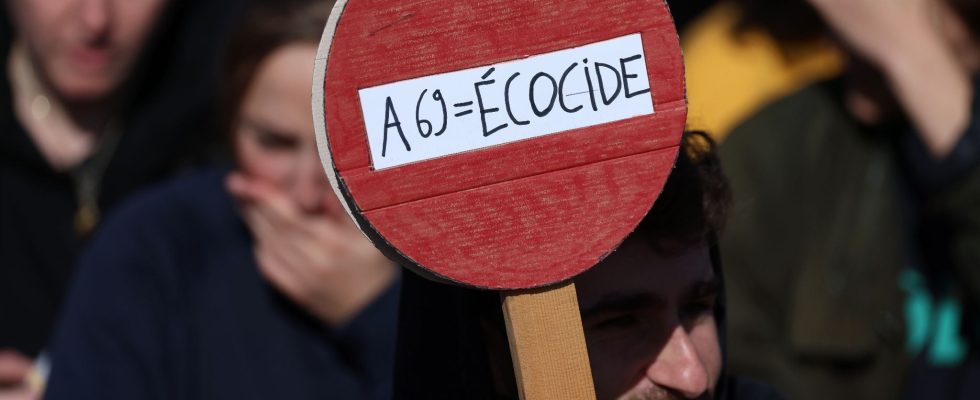So much excitement, noise and hope around ecocide! Rarely has a criminal offense been the subject of such a plebiscite. The reactions sparked by the provisional agreement of the European Parliament and the Council on November 16 on environmental crime have only confirmed, if it was still necessary, the massive support of public opinion for a toughening of the legislative arsenals on the subject. But on closer inspection, the draft directive does not enshrine ecocide in European law. Are the “victory”, the “historical event”, really?
Certain environmental disasters have had a profound impact on French society – oil spills, Lubrizol, AZF, etc. – in a context of climate crisis and polarization of opinion in the face of associative movements. If we can only welcome the fact that the Union is taking up the environmental issue, the European desire to introduce into the national legislation of the Member States a repressive framework in this area will have to be assessed in the light of the final text which will be published, and its real usefulness with regard to national law. Above all, caution seems to us to temper the enthusiasm that has arisen.
Much ado about little
Given the text announced by the European authorities, we are indeed a long way from the doors of the International Criminal Court, but also from a European criminal framework allowing the effective prosecution of transnational environmental attacks. The focus on a “crime” of ecocide is also to be deplored. It seems to prohibit, for reasons more political than legal, a reflection on the scope and effectiveness of offenses in environmental matters. Above all, and contrary to the declarations which have multiplied in recent days, the draft directive does not enshrine ecocide in European law.
Subject to its official publication, the new text establishes an updated list of acts linked to the environment which are considered criminal offenses at European level and introduces the notion of a so-called “qualified” offense, which will subject to stricter sanctions, if it is the cause of “the destruction of an ecosystem or a habitat within a protected site or damage to the quality of the air, soil or the water”. The preamble to the text would simply specify that these are offenses “comparable to ecocide”. On this point, as on others, much ado about little, at least on the French side.
An unclear legal definition
For the record, the notion of ecocide has made its entry into the Environmental Code thanks to the Climate and Resilience law of August 22, 2021. However, ecocide took the form of an offense – and not of a crime – the definition of which is particularly unclear. The intentionality with which ecocide must be committed under French law notably adds a probative condition which risks limiting the effectiveness of prosecutions for the most serious environmental violations. Unless we consider that any environmental offense is intentional… and that everything would then amount to ecocide, which would deprive the French legislative arsenal of all logic.
The agreement on a draft new directive will not shed light on the – very uncertain – contours of the French notion of ecocide, which we deplore. Independent offense or aggravating circumstance of other environmental crimes? “Qualified” offense – which refers to a notion specific to involuntary offenses – or intentional, as required by the notion of “crime”?
That being said, France is once again, as is often the case in terms of environmental legislation, ahead of Brussels. It should not see its national criminal arsenal disrupted by the transposition of the future directive. National requirements go even further, for example on the question of limitation, where the starting point begins on the day of discovery of the damage and not of the commission of the offense as intended by European law.
A minor impact in France
The four new offenses created by the Climate and Resilience Law of 2021 – offense of air and/or water pollution; crime of pollution by waste; offense of endangering the environment, offense of ecocide – exactly overlap the scope of the offenses covered by the draft directive. These offenses have already significantly strengthened the repression of environmental offenses in France and contribute to increased consideration of environmental issues by companies.
The real framework of the draft directive having been recalled, we must obviously welcome the harmonization of the repression of environmental crime at European level. Although France will in reality only be slightly impacted by the transposition of this directive, it is a notable step forward for member states lacking environmental criminal regulations or having a limited repressive framework.
We must also welcome the strengthening of sanctions requested from Member States for these offenses. With fines of up to 5% of annual global turnover, or 40 million euros, and prison sentences potentially targeting the directors of the companies involved, Europe is calling for a increased severity in environmental matters in a logic of deterrence… and recovery for its detractors.
This ambitious political project, the first to date at a supranational level, would be even more impactful if on the same day the European Commission had not renewed the reiteration for ten years of the authorization of glyphosate, whose environmental impact and deleterious consequences on human health have been repeatedly recalled by experts. What could be the subject, in the near future, of repression on the basis of ecocide.
Sarah Becker East associate lawyer at VingtRue Avocats, specializing in environmental law
Julie Fabreguettes East associate lawyer at VingtRue Avocats, specialized in criminal law
